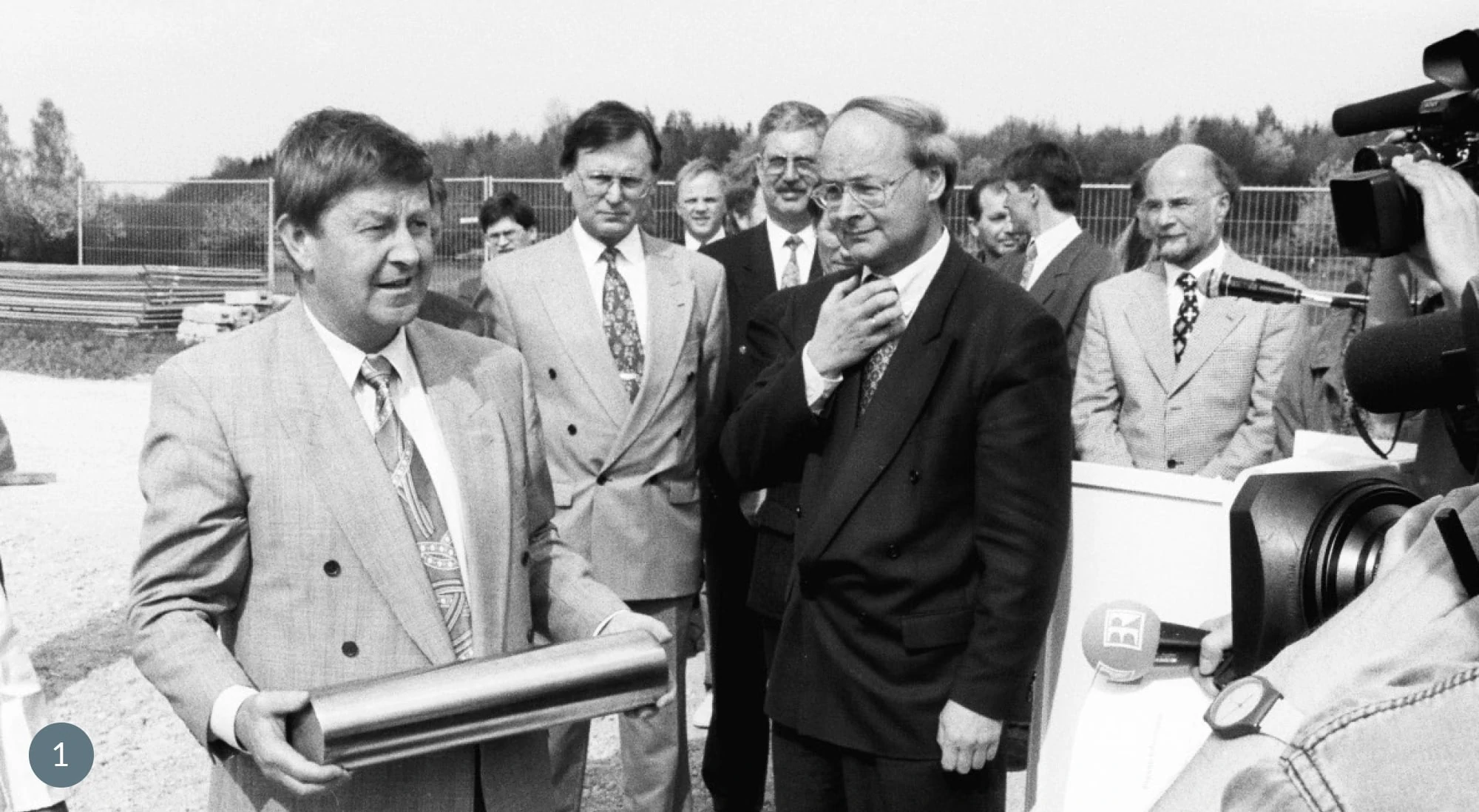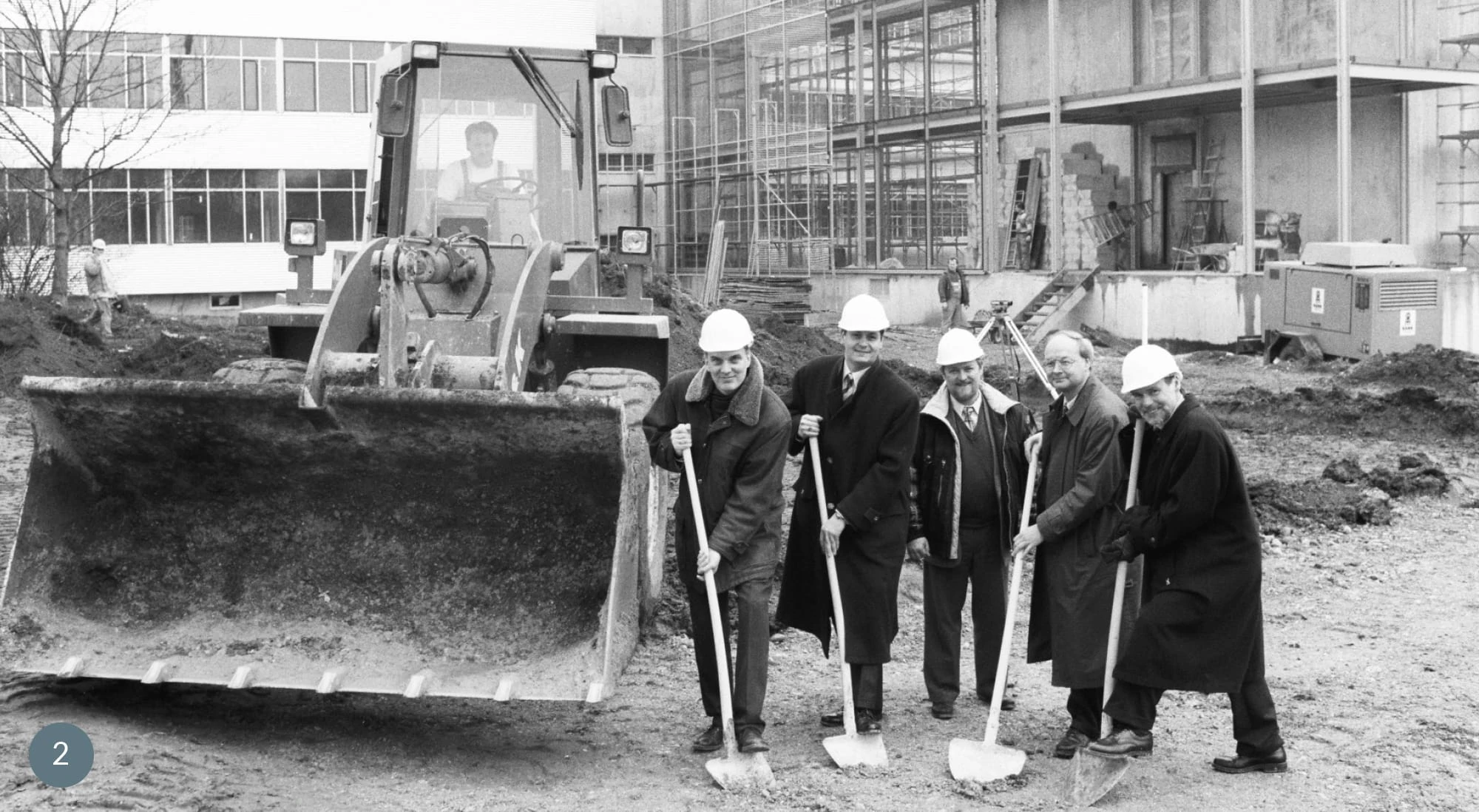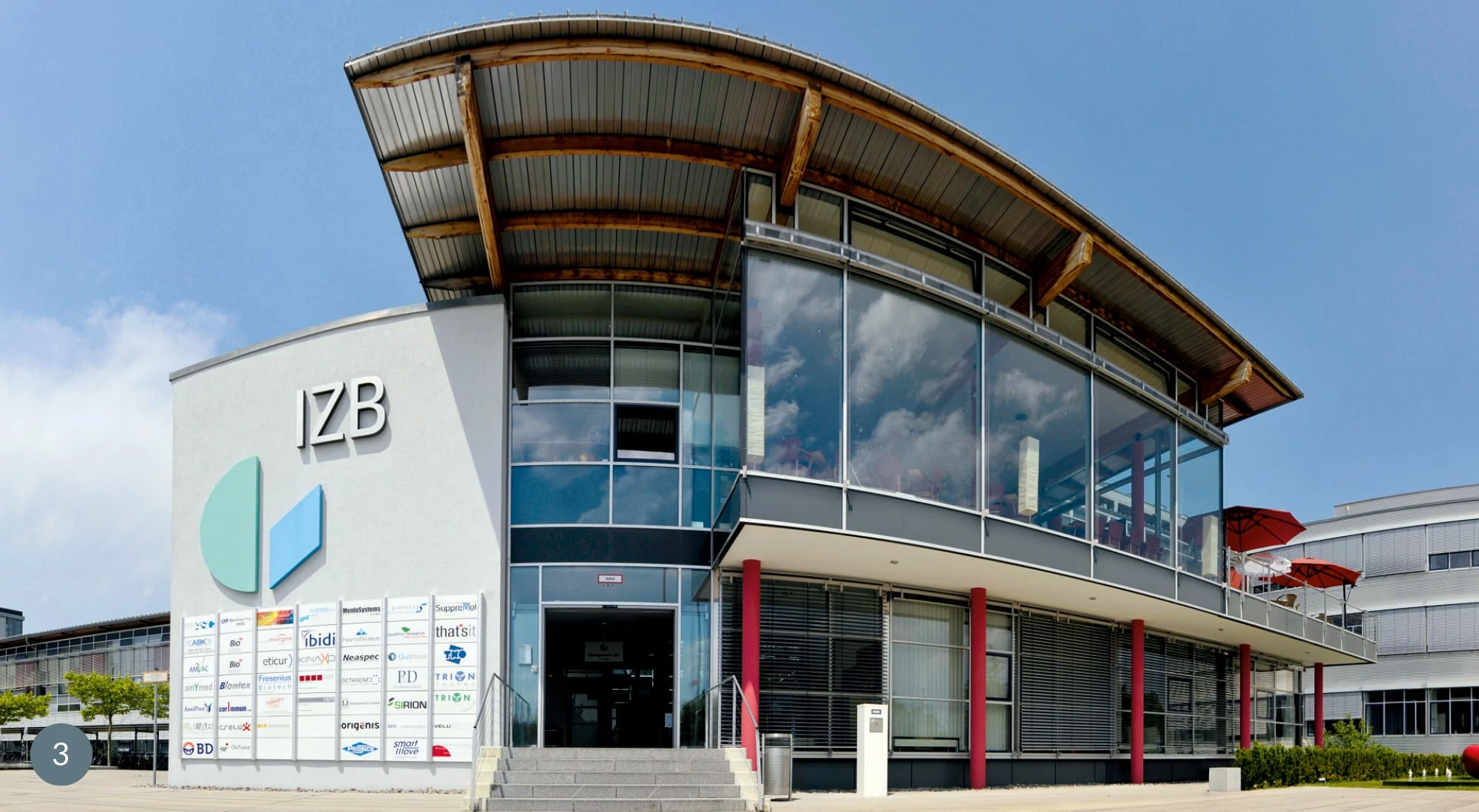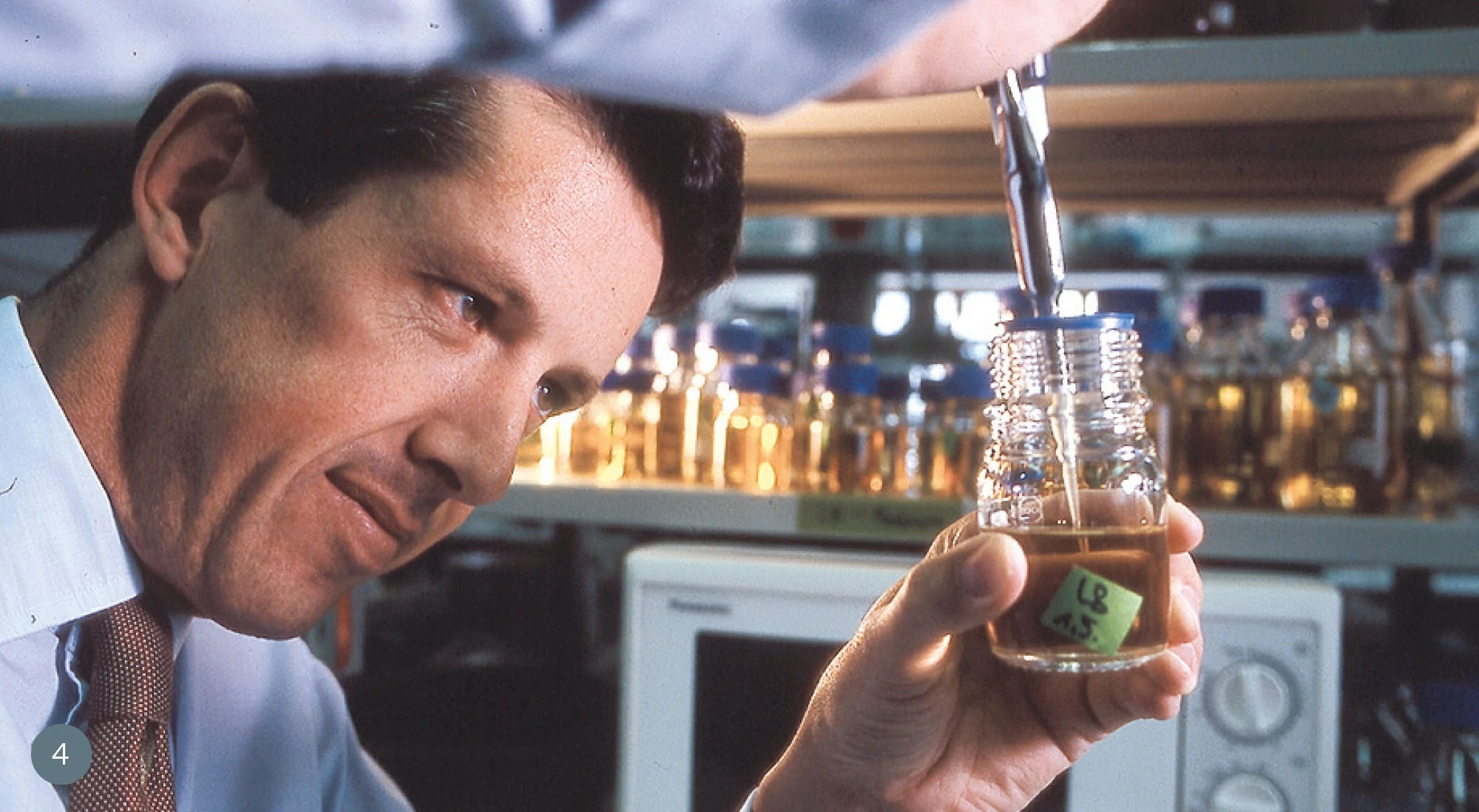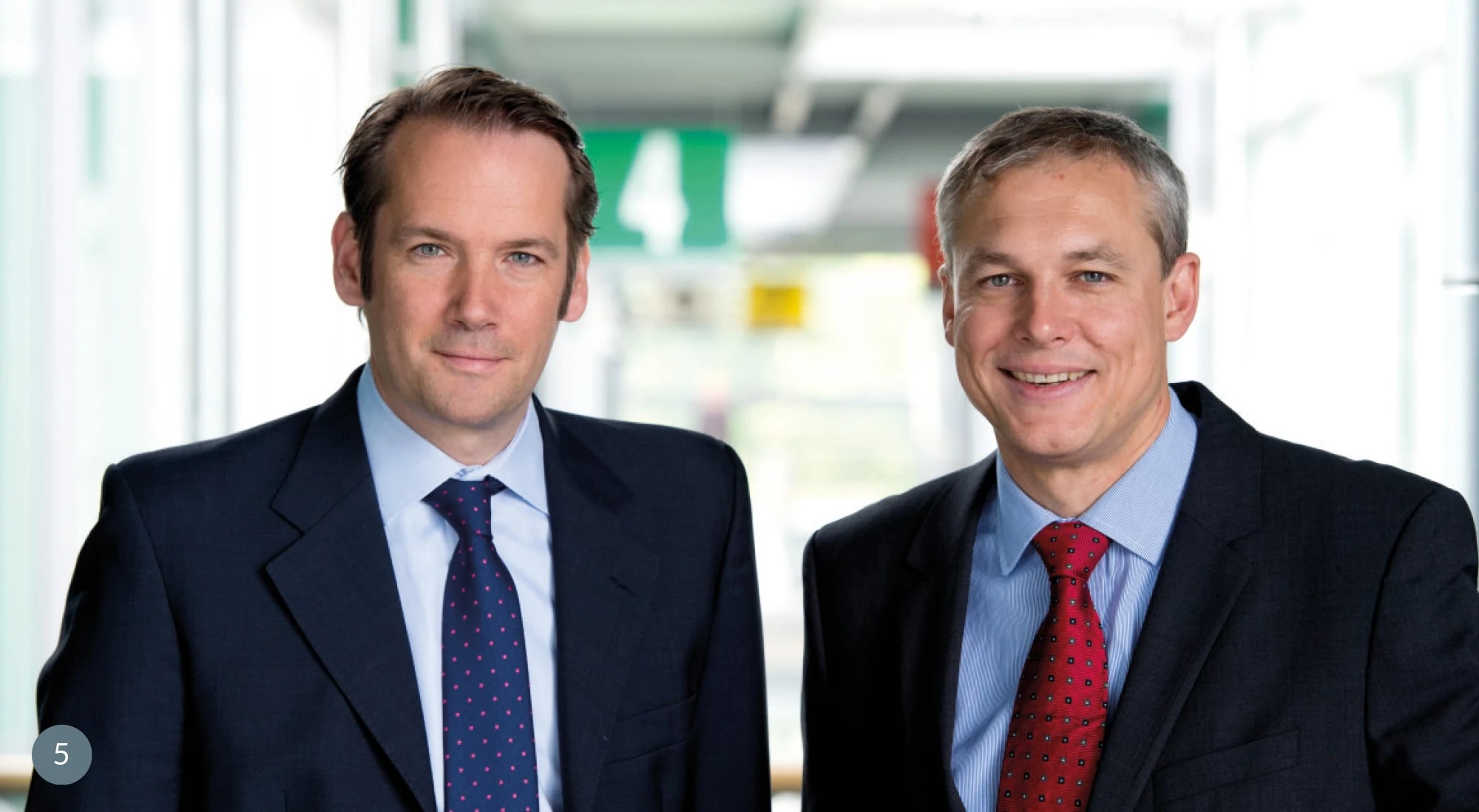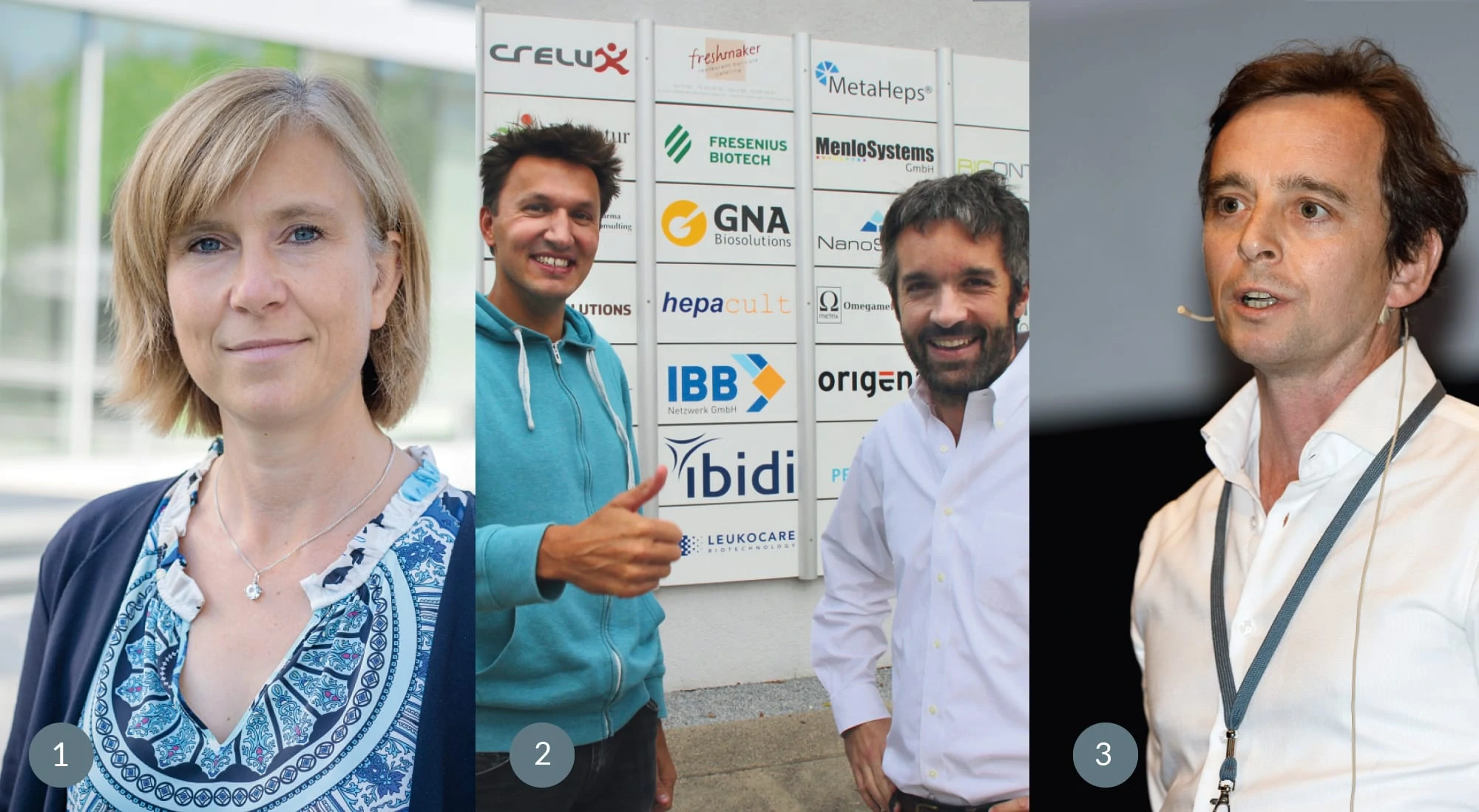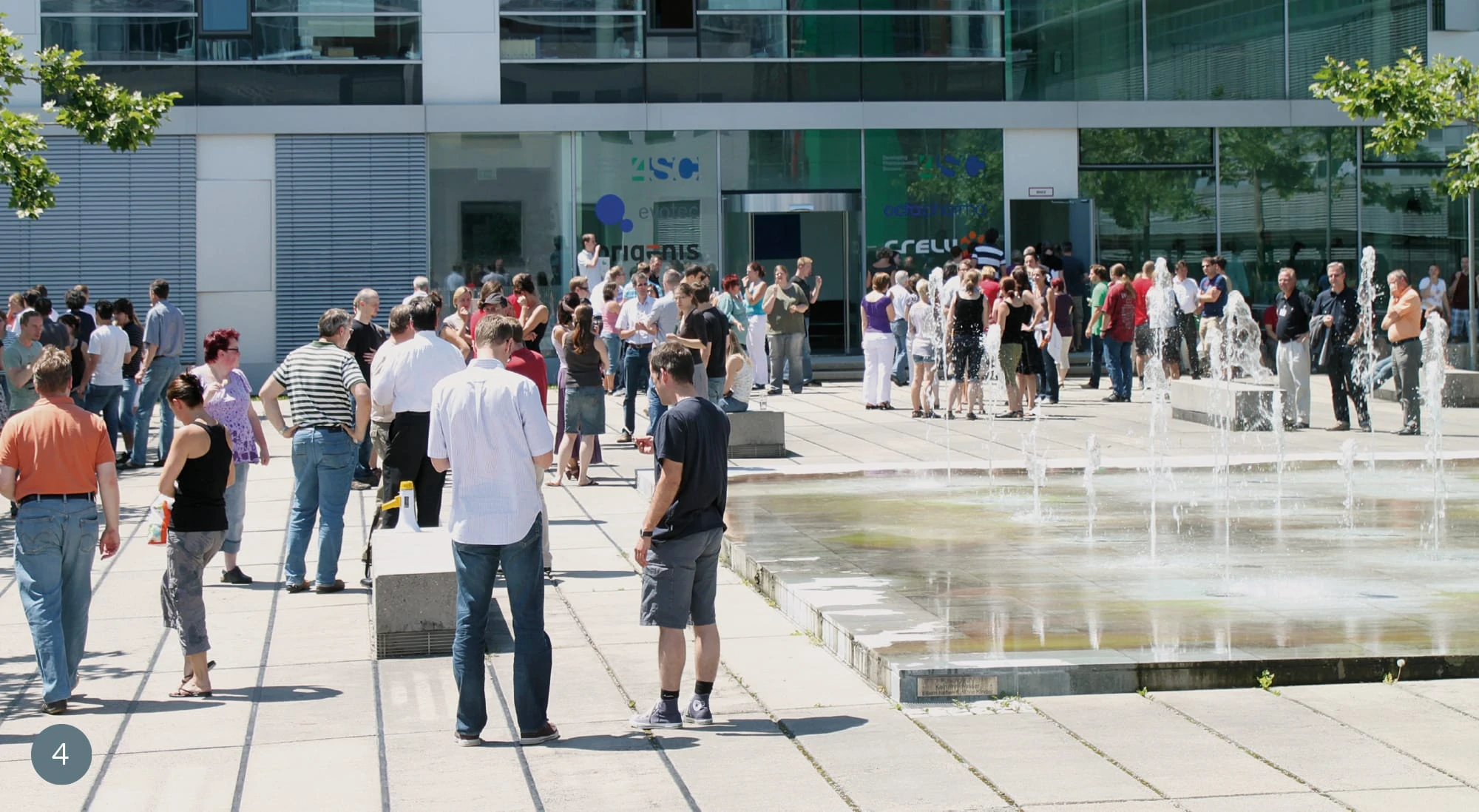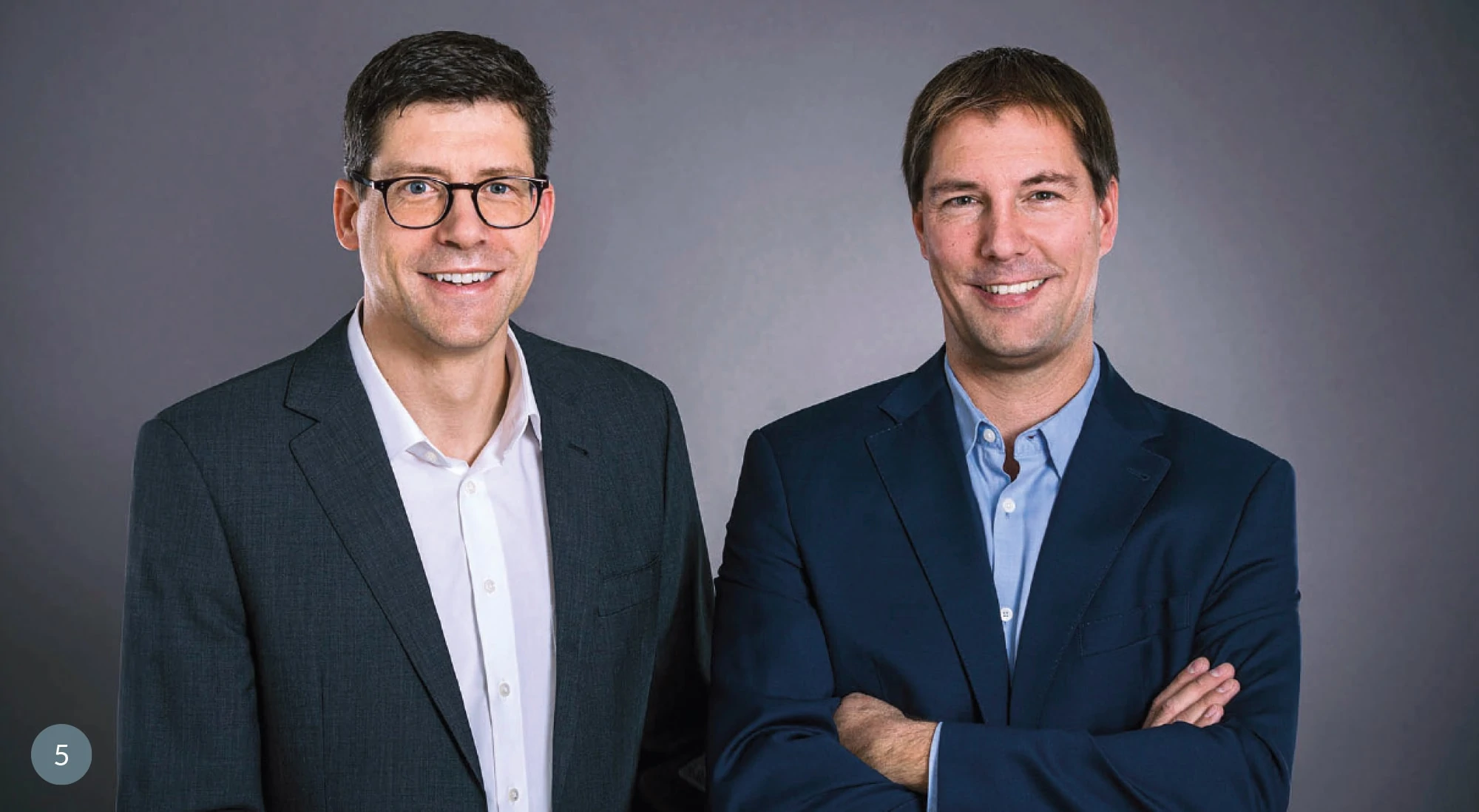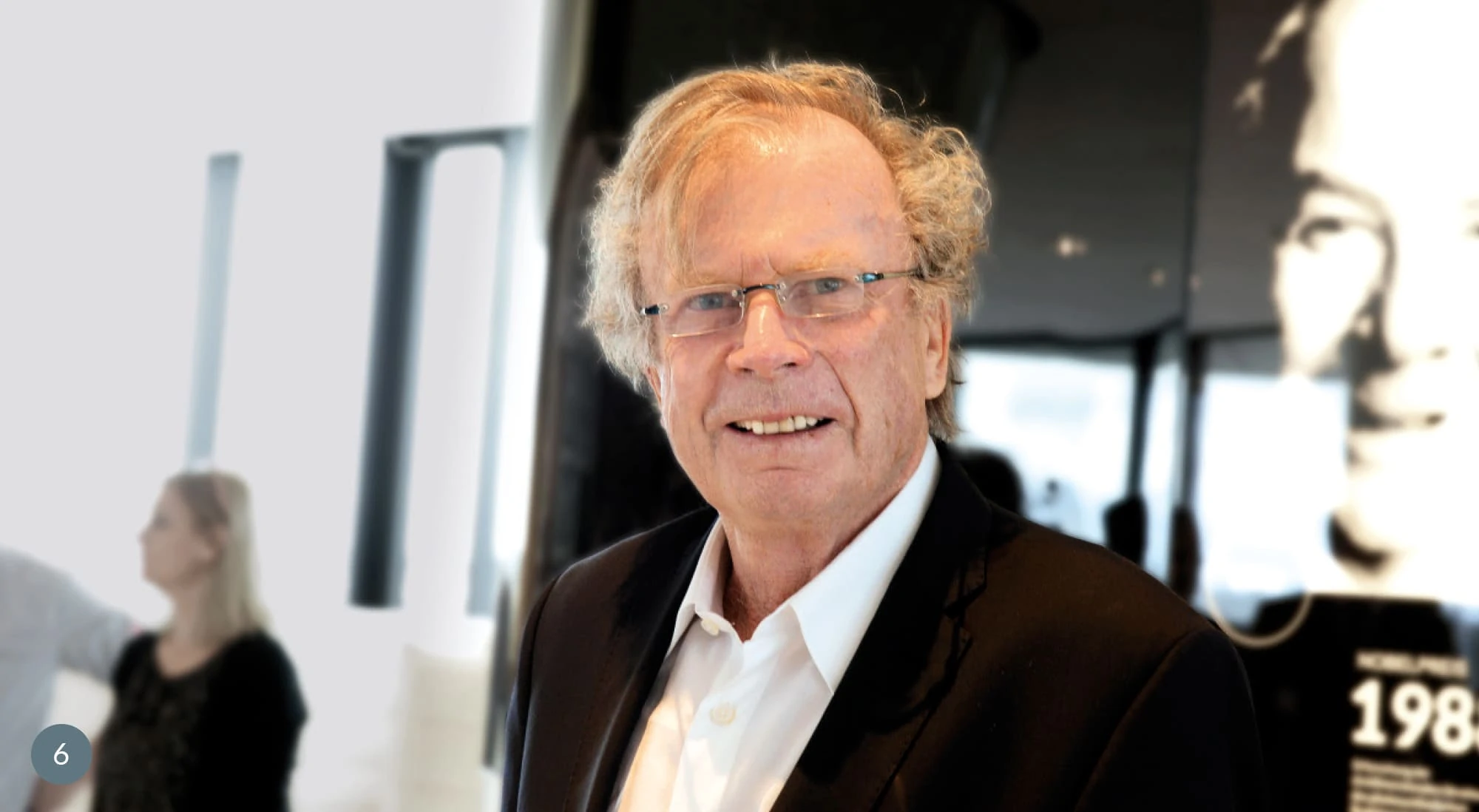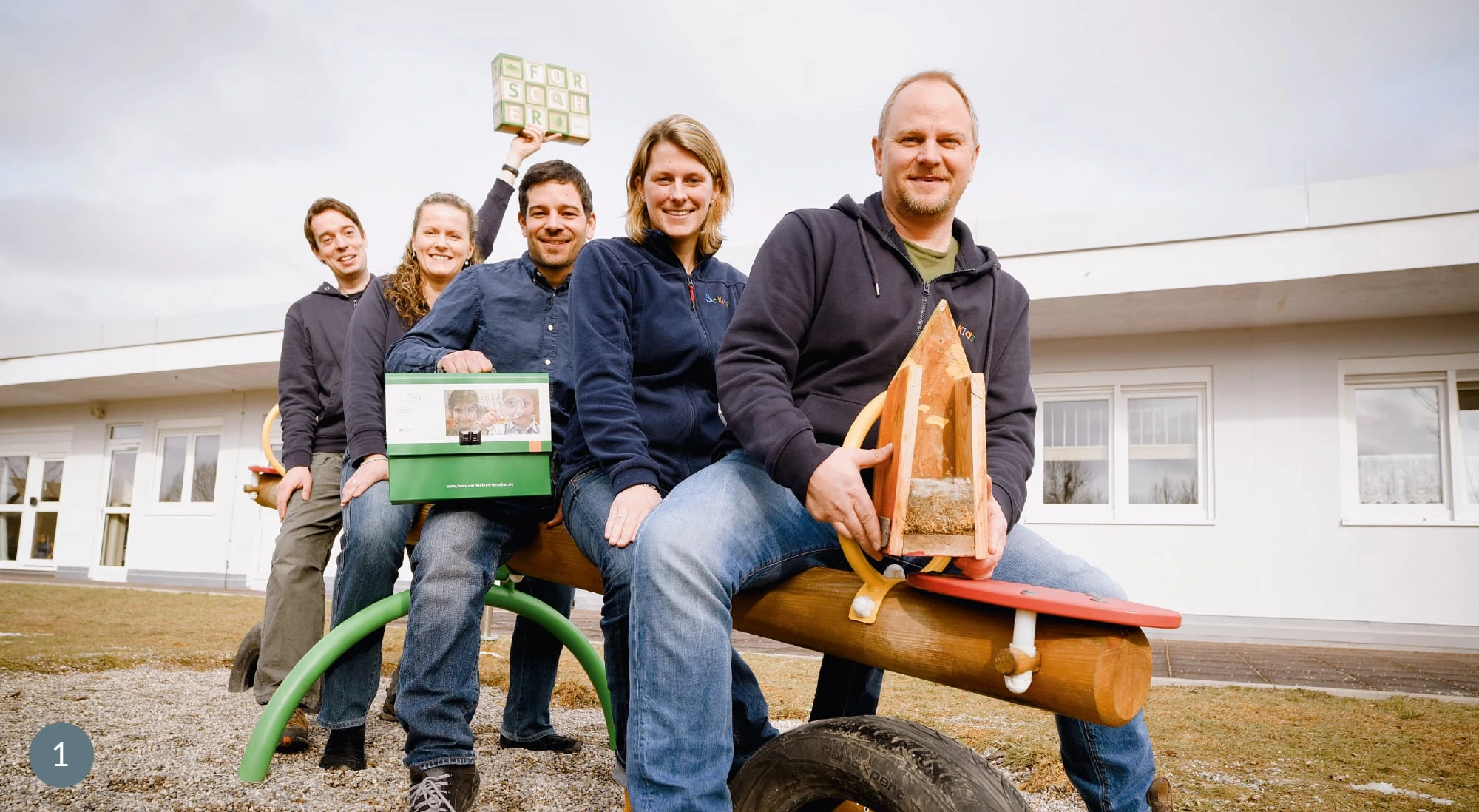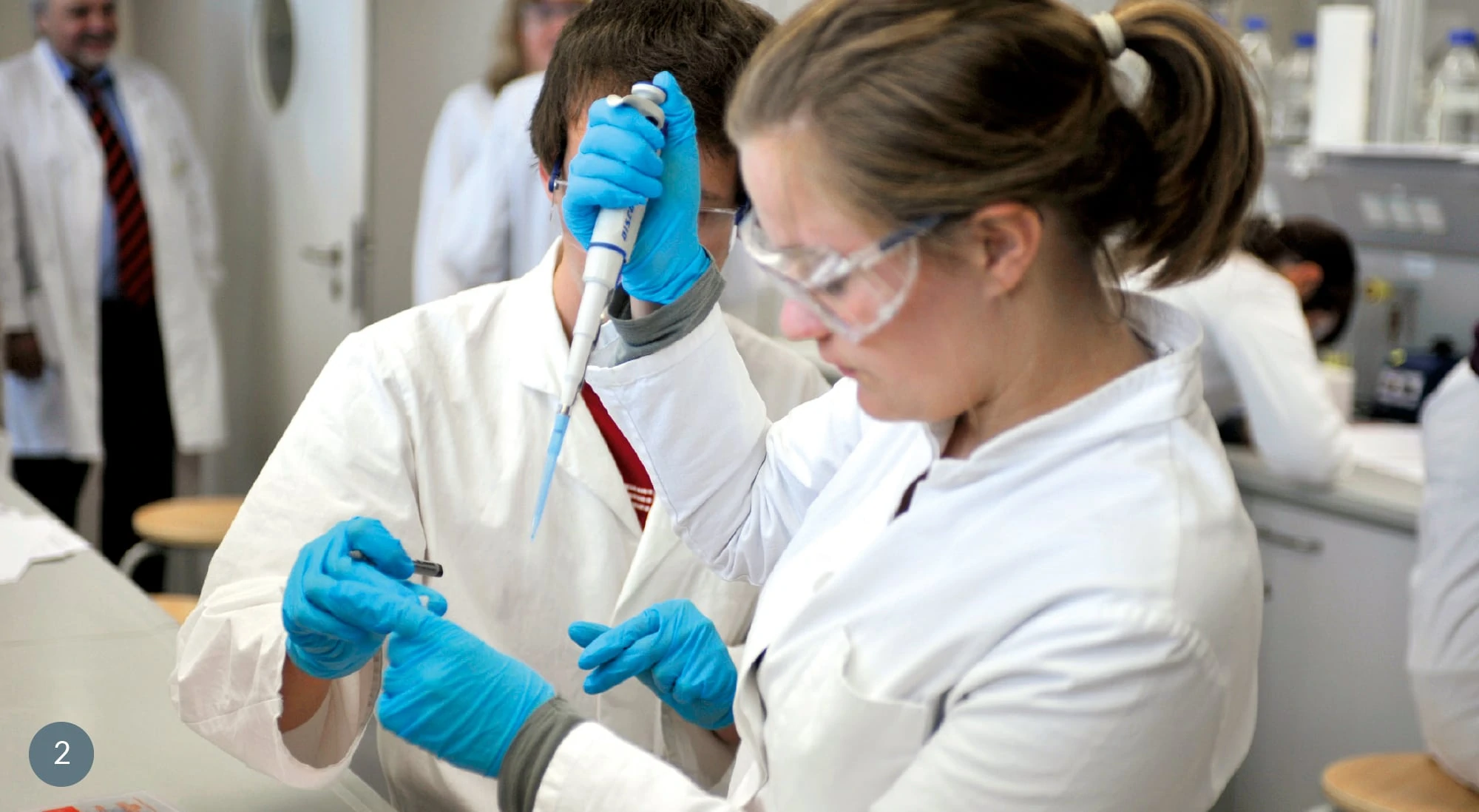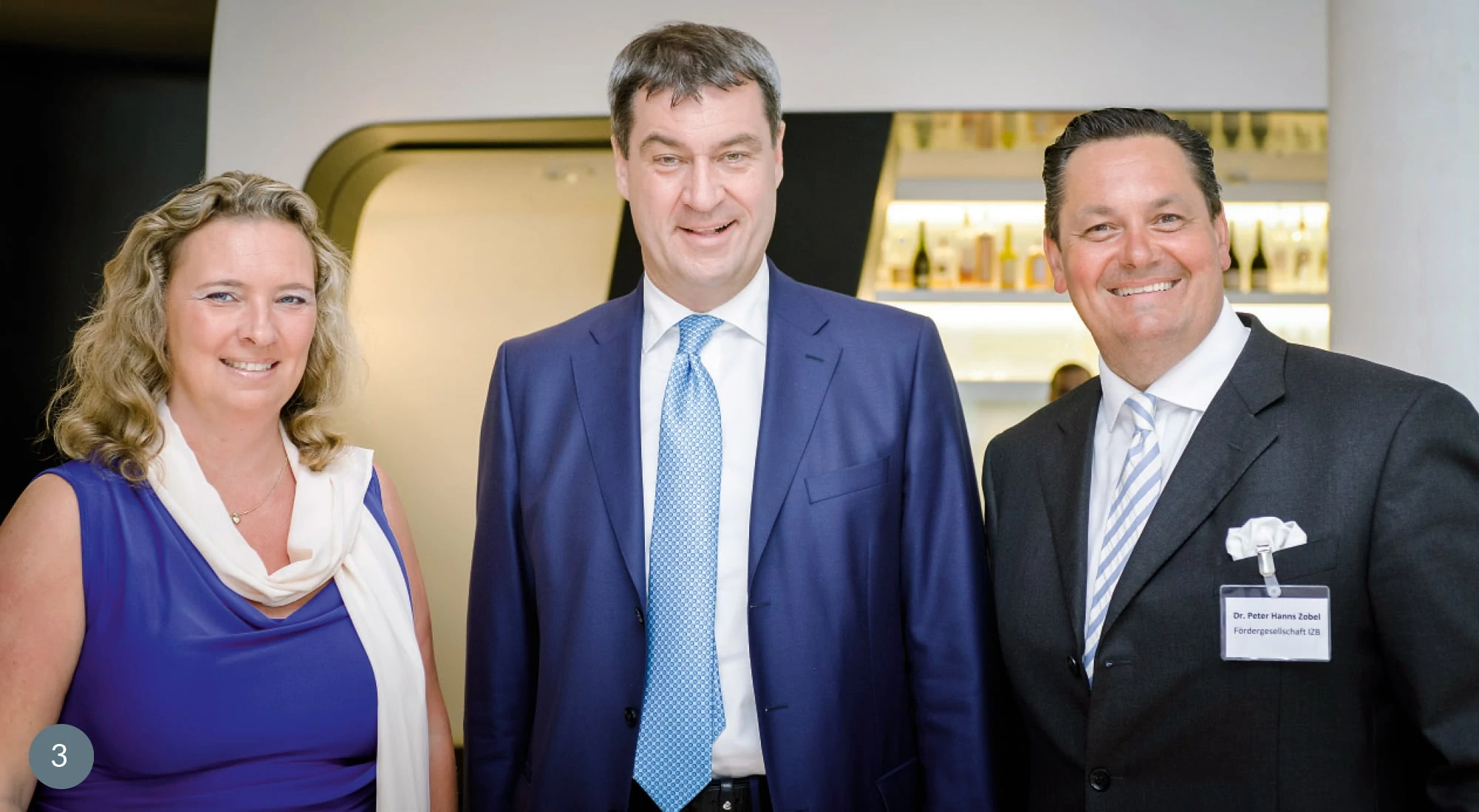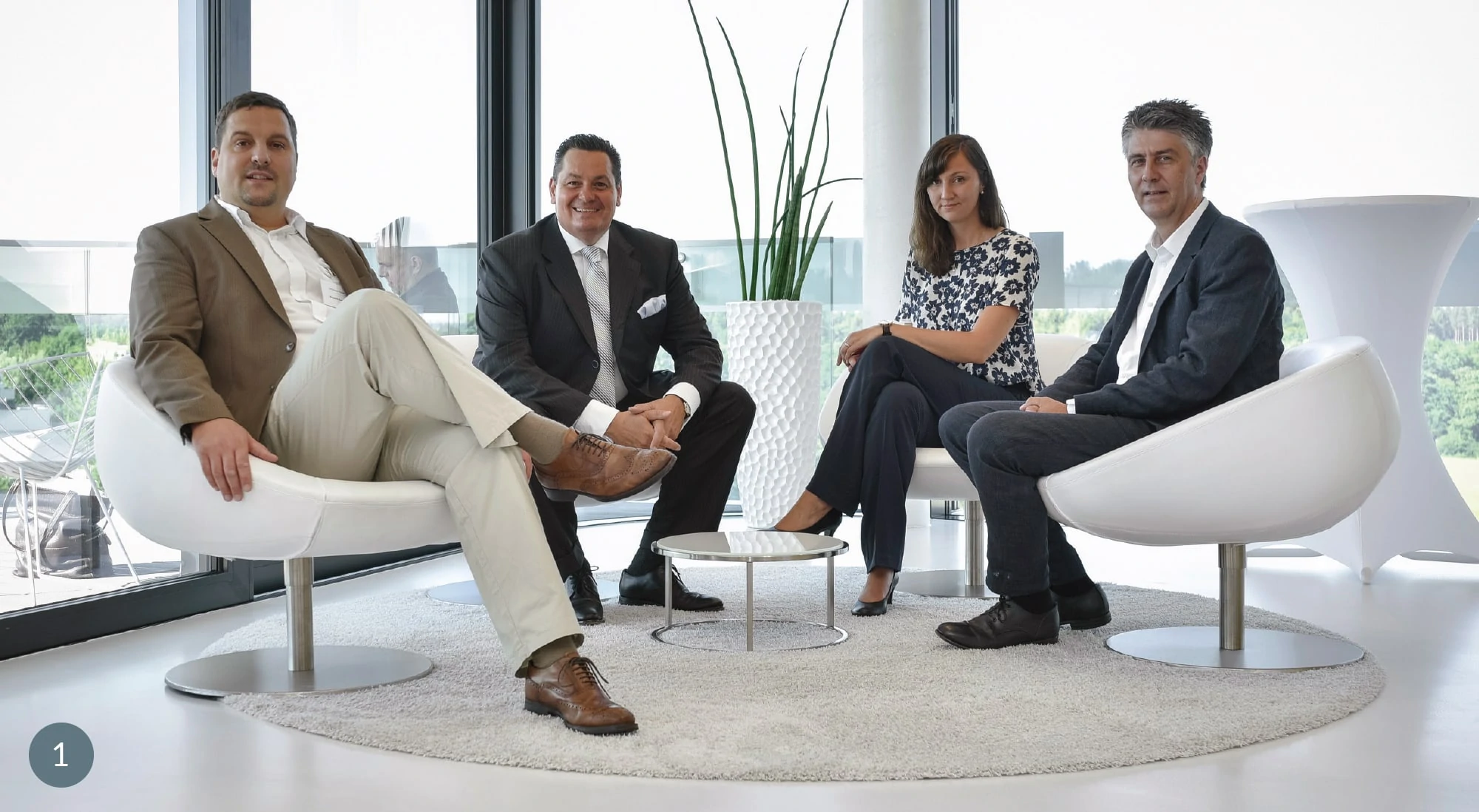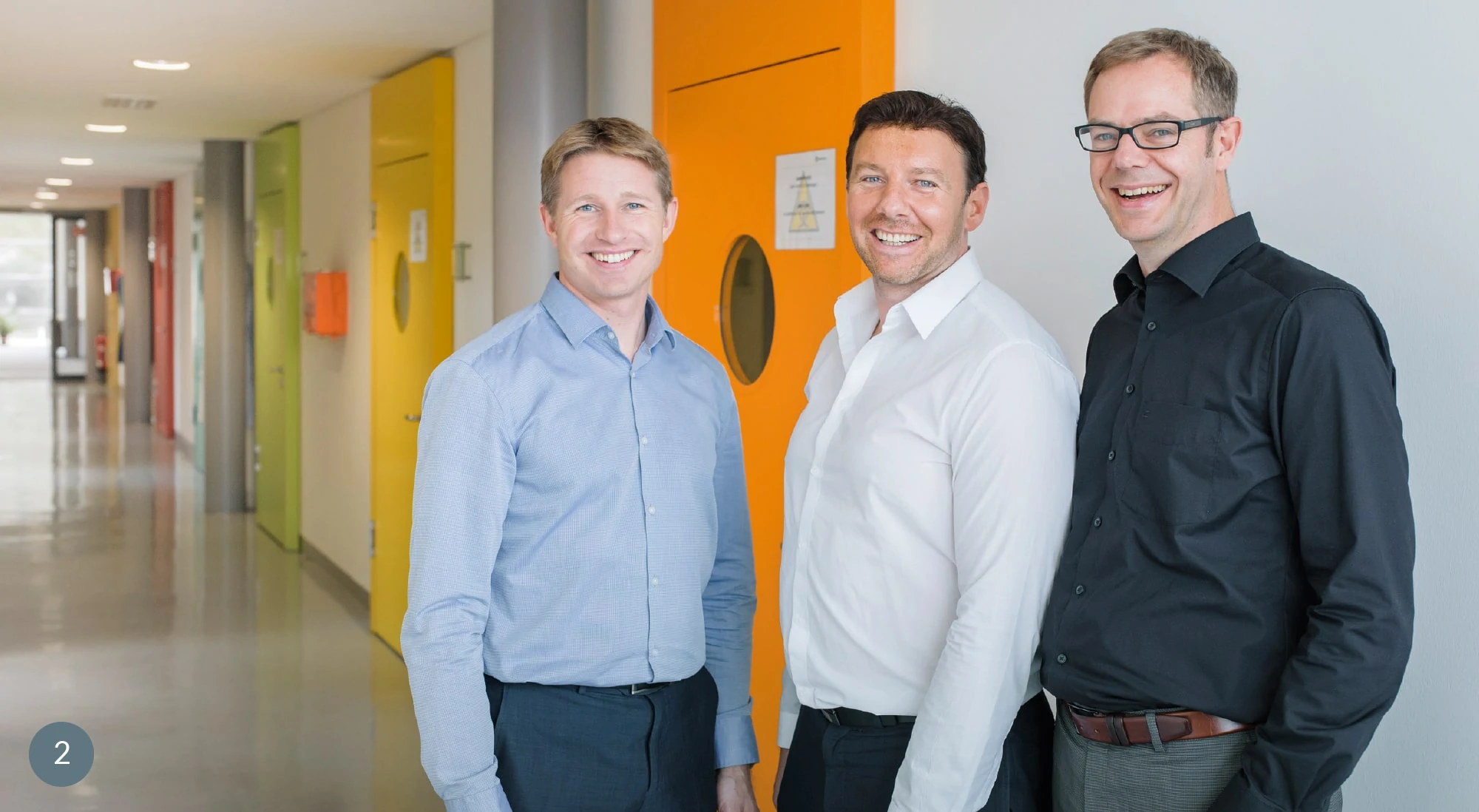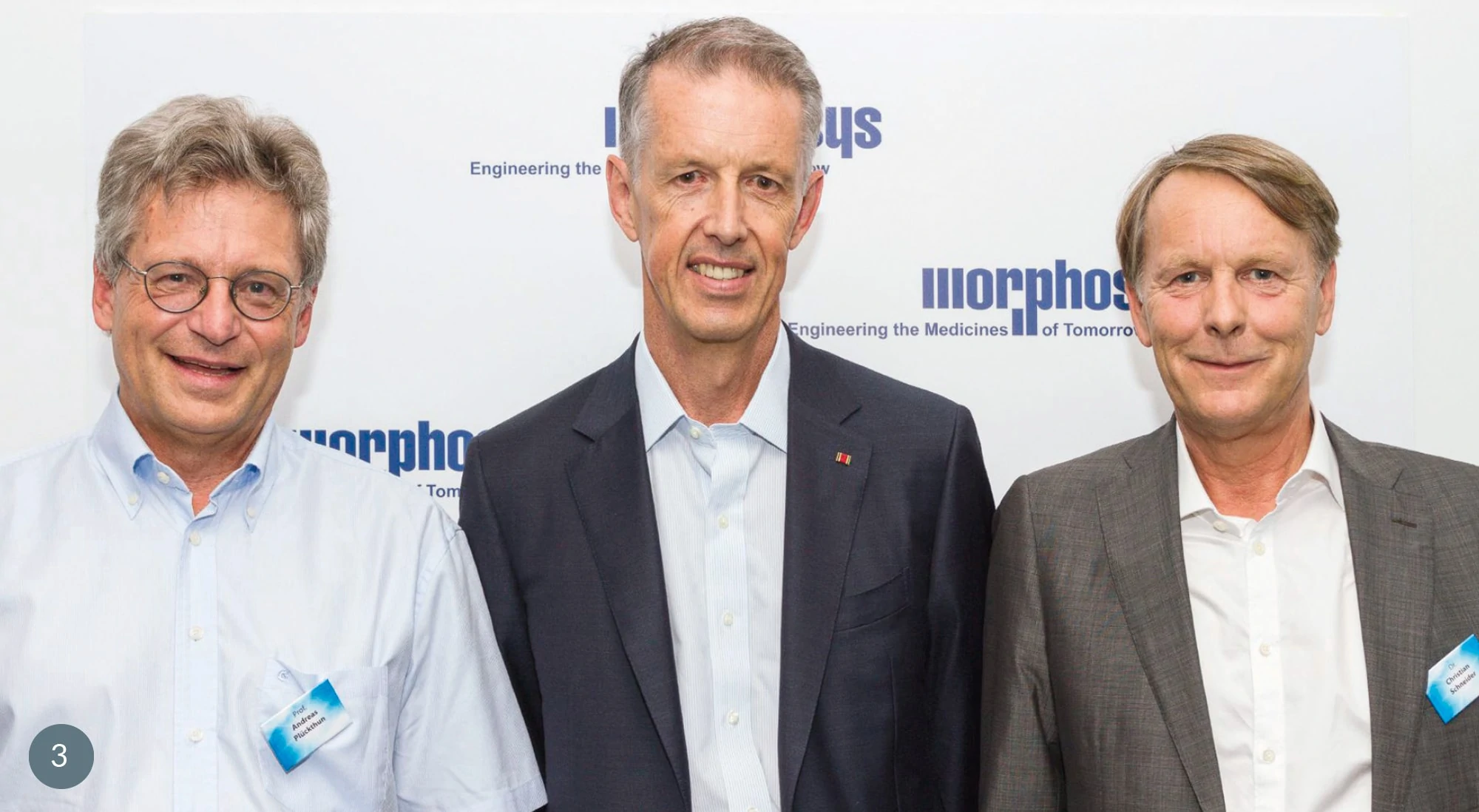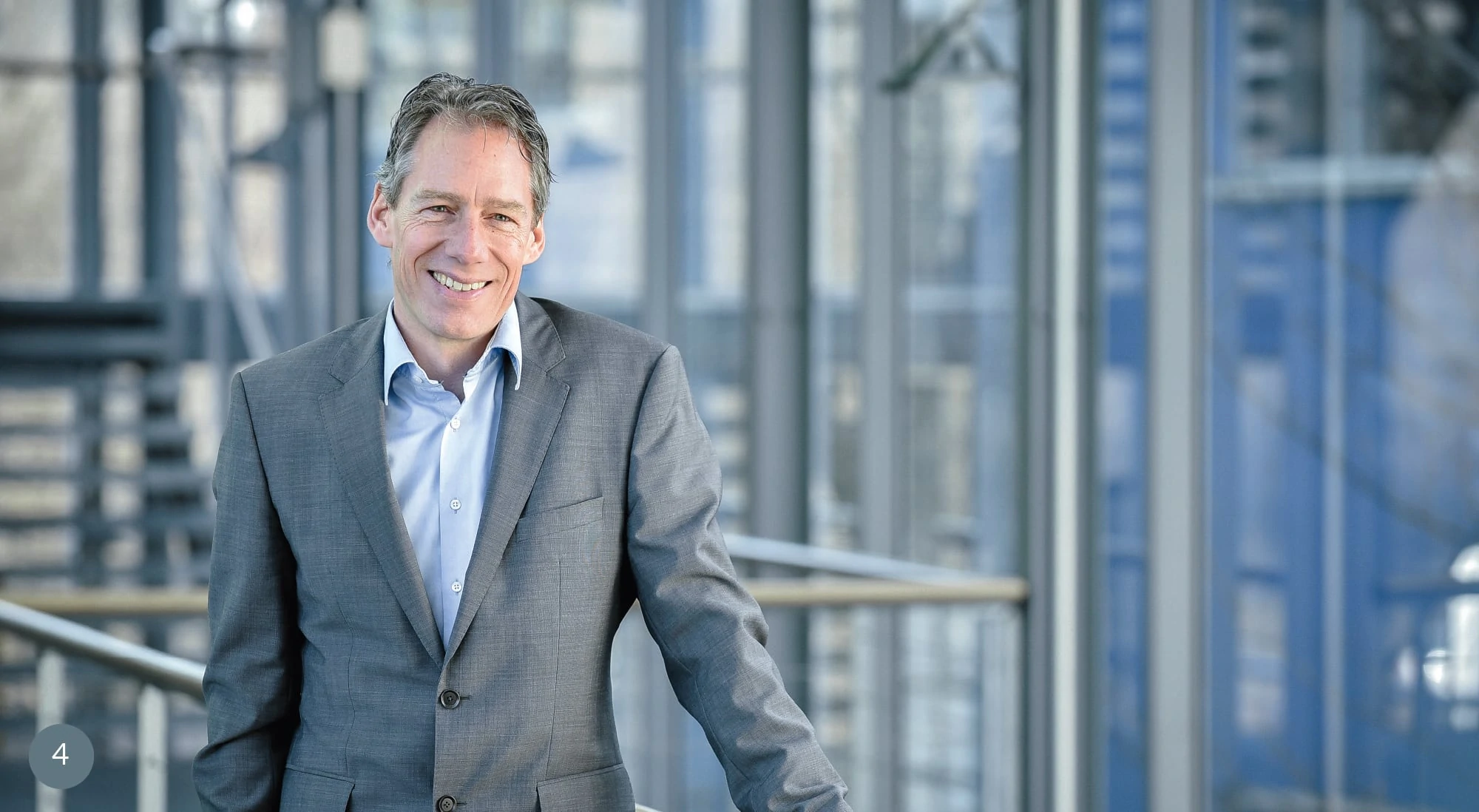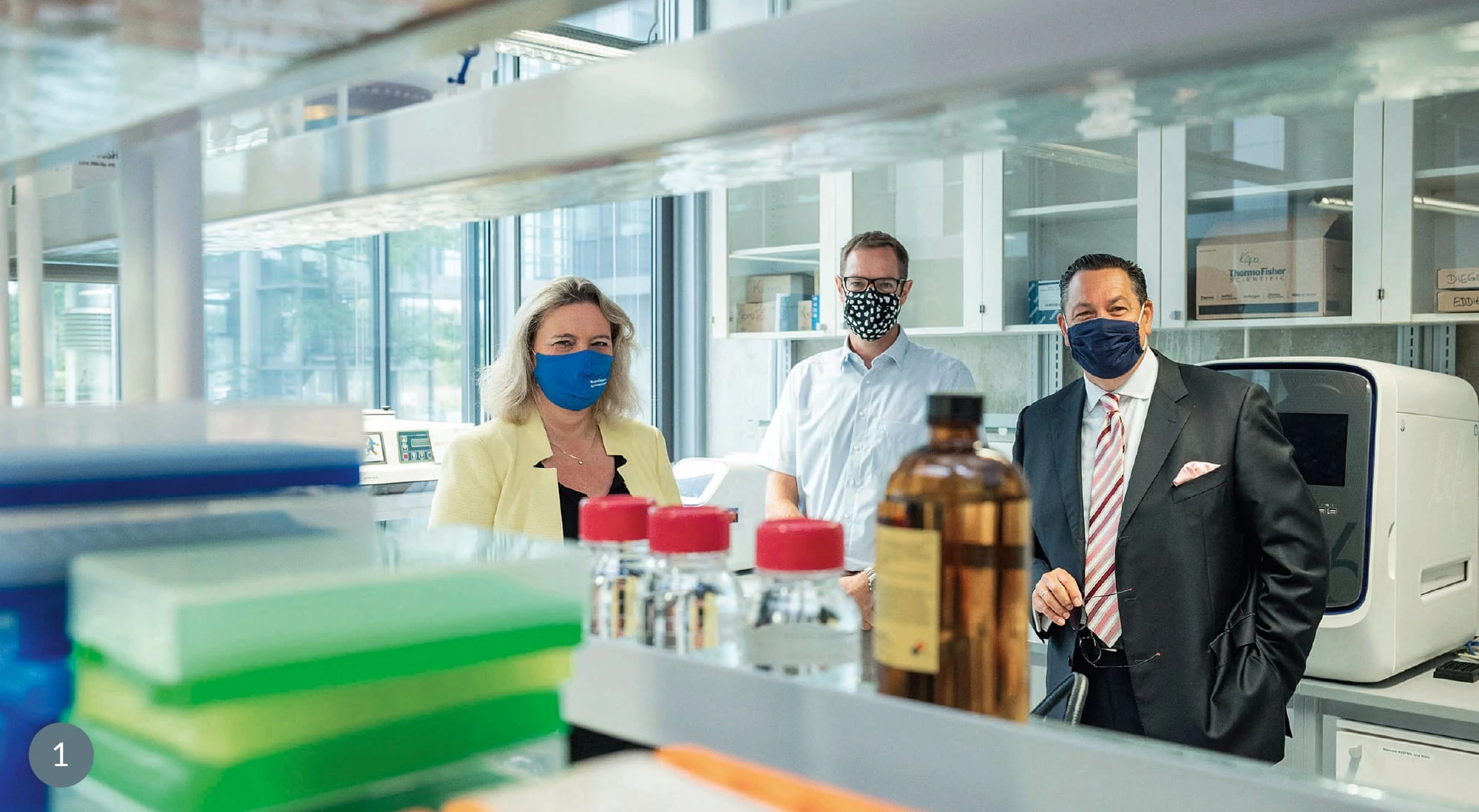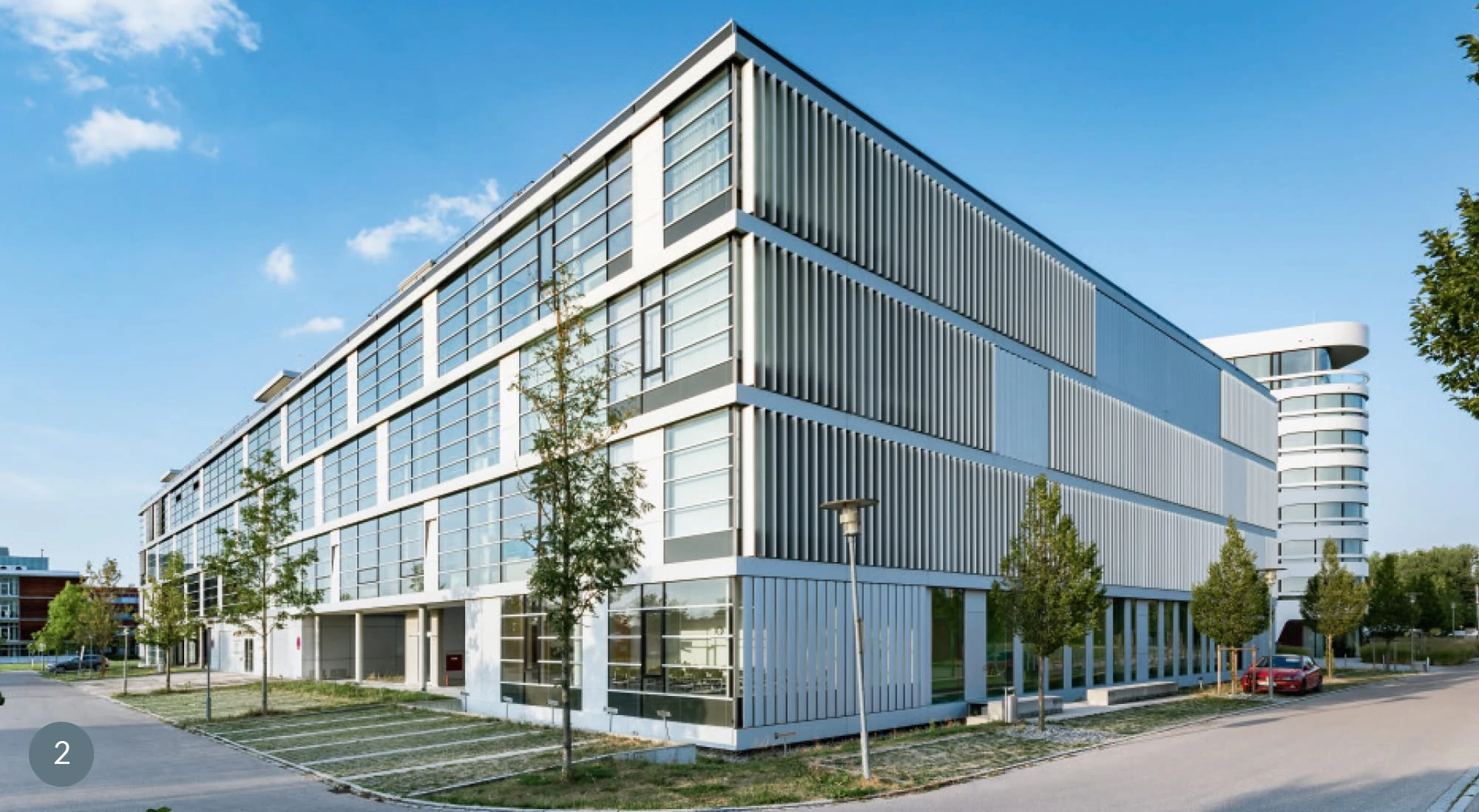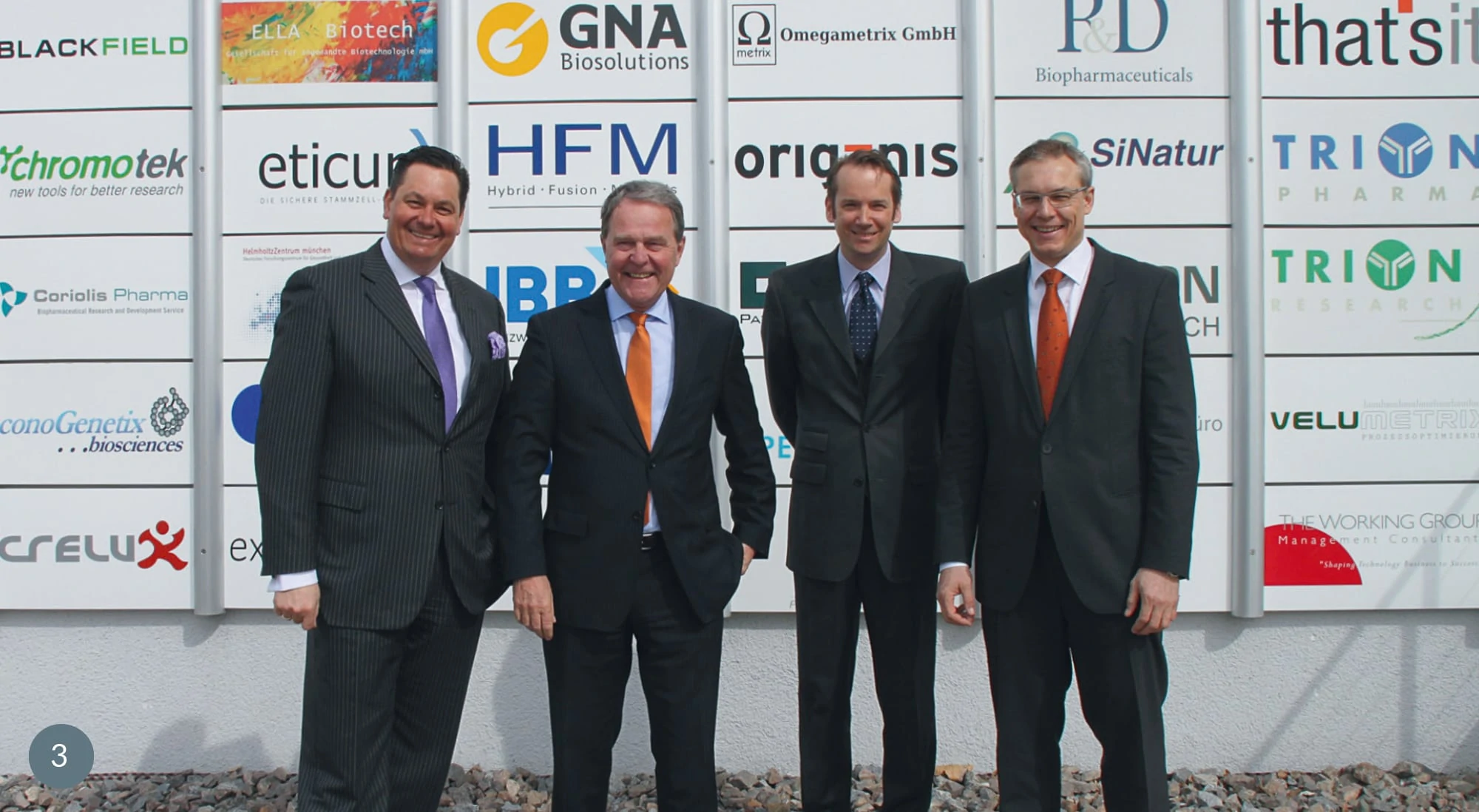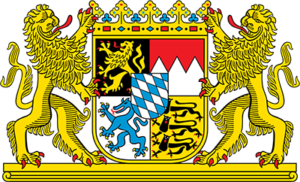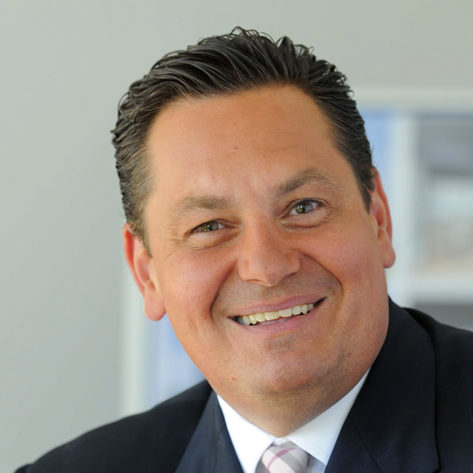
“We have to orientate ourselves to the dynamics of the start-ups.”
Interview with Dr. Peter Hanns Zobel, Managing Director IZB
November 2020
The Innovation and Start-up Center for Biotechnology IZB is celebrating its 25th anniversary this year. In 1995 the IZB started with the aim of supporting the founding of life science companies. Over the years, the IZB, with its locations in Planegg-Martinsried and Freising-Weihenstephan, has developed into one of the most important biotechnology centers in Europe. 160 biotech start-ups have been based at the IZB. The start-up center has grown from 1,000 m2 to 26,000 m2. In the past five years, start-ups from the IZB have raised a total of four billion EUR in capital through deals or financing. Seven start-ups are currently actively working on a solution to fight the corona virus. Dr. Peter Zobel has been Managing Director of the IZB for 24 years and has played a key role in driving the development forward. Susanne Simon interviewed him on the occasion of the IZB’s anniversary.
© IZB
1) Grundsteinlegung mit damaligem Wirtschaftsminister / Groundbreaking IZB 1995 with former Minister of Economic Affairs Otto Wiesheu 2) Grundsteinlegung für 2. Bauabschnitt mit / Groundbreaking for the 2. section 1997 with Dr. Ronald Mertz, Dr. Peter Hanns Zobel, Gerald Hierl, Bernd Schulte-Middelich, Rainer Köhler (v.l.n.r.) 3) IZB 4) Dr. Simon Moroney, ehemaliger / former CEO MorphoSys, heute Aufsichtsratsmitglied / today board member of Novartis 5) Dr. Valentin Kahl und Dr. Roman Zantl, beide Geschäftsführer / both managing directors ibidi GmbH
Would you have thought 25 years ago that the IZB would one day be one of the largest and most respected start-up centers in Europe?
Dr. Zobel: To be honest, that was not predictable. We were of course the first to want to establish the biotech industry in Bavaria, and specifically chose the Martinsried location. We planned around 5,000 m2 of laboratory and office space for the start-up center. Due to the Max Planck Institutes and the Grosshadern Clinic, “Martinsried” already had a worldwide reputation for biotechnology and clinical research. The State of Bavaria, represented at the time by Dr. Edmund Stoiber as Prime Minister, promoted research and development in Bavaria through the initiatives “Offensive-Zukunft-Bayern (1994)” and the subsequent “High-Tech-Offensive (2001)”. A total of almost four billion EUR flowed into the defined key technologies of life sciences, information and communication technology, new materials, environmental technology and mechatronics engineering. Thus we were able to realize the first two construction phases of the IZB with company loans from the two programs mentioned. In order to meet the demand for laboratory and office space at the location in the following years, we financed most of the further construction phases with bank loans – and this proved very successful. A total of almost 160 biotech start-ups have chosen the IZB for their company start-up. Currently, 50 start-ups with over 700 employees are in operation on 26,000 m2 at the IZB.
Why did you build the IZB in several stages?
Dr. Zobel: In terms of operating, it was simply more economical not to build the whole complex at once. Constructing small building sections one after the other is much more expensive, but this strategy enabled us to avoid vacancies in the IZB. When we received approval for the construction phase of House 5 at the 1998 Supervisory Board meeting, the entire floor space was already rented to three start-ups that evening. The only downturn we had was following the stock market crash of 1997 (decline of the “Neue Markt” in Germany). However, we were able to sublet laboratories returned by companies at that time, to start-ups at the IZB, and thus got through the crisis with little damage.
What is the IZB’s secret of success?
Dr. Zobel: Here, on the Martinsried and the Grosshadern campus we are located in the middle of a “hotspot for life sciences”. We are encircled by two Max Planck Institutes for Biochemistry and Neurobiology and 10 faculties of the Ludwig Maximilian University. In addition, the Grosshadern Clinic and the Helmholtz Center are located in the immediate vicinity. The spin-offs that move directly into the IZB come from these institutes. The large network on the campus holds incredible potential. The combination of teaching, basic research and entrepreneurship is the recipe for success. Moreover, we have created an infrastructure where the founders feel comfortable. Many successful companies have emerged from the IZB over the past 25 years. Micromet, MorphoSys, Medigene, Proteros, Coriolis, Pieris, Rigontec, Immunic Therapeutics, SIRION Biotech, Exosome, LEUKOCARE or GNA Biosolutions, to name just a few. But also the dynamism and success of the scientific institutes, which give rise to Nobel Prize winners or Leibniz Prize winners, further strengthen the reputation of our location.
© IZB
1) Dr. Hella Kohlhoff, CSO Immunic Therapeutics 2) Pascal Schweizer, Geschäftsführer /Managing Director Thermosome GmbH; Martin Spitznagel, Geschäftsführer /Managing Director BIND-X GmbH 3) Dr. Christian Thirion, CEO SIRION Biotech GmbH; 4) Start-ups im IZB / Start-ups at the IZB 5) Dr. Jens Ruhe, CEO; Dr. Matthias Scheider, CSO SciRhom GmbH 6) Prof. Dr. Bruno Reichart, Chairman and Professor, Cardiac Surgery, Emeritus, Speaker of the Transregio Research Group “Xenotransplantation” German Research Foundation (DFG)
How do you know if a founder will be successful?
Dr. Zobel: This might not sound very analytical, but in addition to analyzing the business plan that needs to be submitted, I rely on my instinct – and that has never let me down. After a few minutes I have a feeling about whether someone can cope with all the adversities of an entrepreneurial life. As a founder you need a lot of courage and confidence and you can sense that with many start-ups. Bringing someone to the IZB as a start-up and accompanying them for years means entering into a close partnership. That’s why I make a relatively quick and emotional decision. The quota of companies that have not made it over the past 25 years is very low at the IZB: it is around 5 percent. But that’s only one side of me. The other side is that I grew up in an entrepreneurial household. From an early age, I picked up economic thinking from my parents. That’s why I felt confident that I could build up the start-up center when I was 31 years old. Establishing a business incubator and running it is not a job for a candidate with a stable work-life balance. Here you need creativity and quick solutions that suit the start-up; you could say you have to be an “executer”.
Is there an anecdote from the early years?
Dr. Zobel: I remember a start-up moving into House 4. We were walking through the rooms and he was obviously looking for something, furrowing his forehead. His facial expression was one of discomfort. Finally he asked me where the computers would be. Even at the university there would have been computers in every room. At first, many start-ups were a little naive. Today they have become very professional. I am pleased that over the years I have remained in contact with a great many start-ups. I am happy to make time for lunch with an alumni at any time.
You built a kindergarten at the IZB. Why were you so committed to this?
Dr. Zobel: I find out what is important for the start-ups through many intensive discussions. At that time the call for a kindergarten was very loud. Many women who worked in biotechnology had not been able to return to their jobs because of insufficient childcare options. I do not wait for better times. I solve problems myself. So we built a childcare center with a bilingual concept, its own cook for organic food, plenty of room for creativity and greatly extended opening times. It became one of our most successful projects. For 11 years I myself was a member of the board of directors and for the most part also chairman of the board of the Kita Bio-Regio e.V., and had more employees there than at the IZB. Particularly through the kindergarten, communication on campus took off. So the father of Tobias spoke to the father of Peter; and it wasn’t until months later that they found out that one is a director at the MPI and the other is a young founder. In this way I also learned that the MPI urgently needed a hotel and a faculty club. Prof. Bonhoeffer explained to me how important these facilities were for them, but because of the statutes of the MPI, approval could never be granted. Either the IZB had to take it in hand – or nobody would have implemented the projects. So we built the CAMPUS AT HOME hotel with an integrated Faculty Club. The popular networking events such as the IZBrunch or the Biotech Press Lounge show us that we were right in our forward thinking. For me, a corner of the table with two wheat beers is still the best basis for starting new projects.
© IZB
1) Auszeichnung des Kinderhauses Bio Kids als Haus der kleinen Forscher / Award for the children‘s house Bio Kids as House of Little Researchers 2) Labor / Laboratory IZB 3) Wirtschaftsempfang im IZB / Economic reception 2016 mit / with Kerstin Schreyer, Stimmkreisabgeordnete und Bayerische Staatsministerin für Bauen, Wohnen und Verkehr / Voting group representative and Bavarian Minister of State for Building, Housing and Transport; Dr. Markus Söder, damals Bayerischer Finanzminister, heute Bayerischer Ministerpräsident / former Bavarian State Minister of Finance, today Bavarian Prime Minister; Dr. Peter Hanns Zobel, Geschäftsführer / Managing Director IZB
Managing director of a business incubator, director of a kindergarten and hotel director. What characteristics do you need for this?
Dr. Zobel: Certainly courage. I am a generalist and my thinking is solution-oriented. With an administrator’s soul, I would have been content with 5,000 m&2 of office and laboratory space at the IZB and not implemented any other infrastructure projects. I always think to myself that this can’t be the end. I am driven to implement the wishes of my start-ups. Our whole team sees itself as a service provider. It is just a better atmosphere on campus when everyone feels comfortable. Here multipliers from pharmaceutical, biotech and venture capital companies as well as auditors and management consultants come and go. We cannot afford to make mistakes. Negative experiences always have a longer lasting effect than positive ones. If everyone leaves with a smile, that will help our location enormously. I have put my heart and soul into the IZB – and it has become my life’s work.
Over the last 5 years deals and financing worth almost four billion EUR have been realized at the IZB. How has the venture capital scene changed over time?
Dr. Zobel: The biotech scene has developed very positively. At the beginning, some VCs were disappointed that the projects in this industry have a long time horizon and involve high investment sums. Today, every VC company has a biotech specialist or even an entire department in the life sciences field. The return on investment is worthwhile, as has been shown in the past. We encourage early contact between our start-ups and investors or pharmaceutical companies. To this end, we launched the Munich Life Science Pitch Day, which takes place every year. In the past, one invested one to two million in a start-up. Today it is two-figure million sums in a series A round.
Can you briefly tell us about some successful deals at the IZB?
Dr. Zobel: Many founders at the IZB have attracted the attention of international pharmaceutical companies. The first generation at the IZB included biotech companies such as MorphoSys, MediGene and Micromet. Who would have thought that these very first companies at the IZB would one day develop into the most renowned biotech companies in Germany. MorphoSys, with a market capitalization of almost 4 billion EUR, has already launched two drugs onto the market. Micromet, which specializes in cancer drug development, was sold to Amgen for 1.16 billion USD in 2012 after just seven years. In 2015, the pharmaceutical company Baxter (now Shire) acquired Suppremol for 200 million EUR. The company developed treatment options for autoimmune diseases and allergies. In the same year, we succeeded in “luring” a very promising company, Rigontec GmbH, from Bonn to Martinsried. Only 2 years later Rigontec was sold to MSD. In 2017, the company, led by Dr. Christian Schetter received up to 464 million EUR for an innovative immunotherapy. In 2010, under the direction of Dr. Mikkel Noerholm, Exosome Diagnostics, a US company that develops molecular diagnostic tests, chose the IZB as its headquarters for its European development location. In 2018 Bio-Techne Corporation acquired Exosome Diagnostics for up to 575 million USD.
© IZB
1) Munich Life Science Pitch Day 2016 with Andreas Huber, Senior Investment Manager, Director Life Science, Bayern Kapital GmbH; Dr. Peter Zobel, Geschäftsführer / Managing Director IZB; Dr. Marianne Mertens, Principal bei Wellington Partners; Prof. Dr. Stefan Jaroch, VP Public Private Partnerships, R&D Open Innovation, Bayer Pharma AG (v.l.n.r) 2) Foto 2016: Ph.D Johan Skog, CSO, John Boyce, ehemaliger / former CEO, Ph.D Mikkel Noerholm, Head of European Operations Exosome Diagnostics – a Bio-Techne Company (v.l.n.r.) 3) Gründer / Founder MorphoSys AG; Prof. Dr. Andreas Plückthun, Dr. Simon Moroney, Dr. Christian Schneider (v.l.n.r.) 4) Dr. Christian Schetter, ehemaliger / former CEO Rigontec GmbH
How do start-ups find investors?
Dr. Zobel: There are now extensive federal support programs in Germany, such as EXIST from BMWi or GO-Bio initial from BMBF. Seed financing of start-ups is also supported by Bayern Kapital and the High-Tech Gründerfonds (HTGF).
The corona crisis has brought biotechnology into focus. How many start-ups at the IZB are currently working on corona?
Dr. Zobel: Also in times of the corona crisis, there are entrepreneurs from the IZB, among others, who are working on future-oriented solutions. GNA Biosolutions will launch a rapid corona test in autumn 2020. Immunic Therapeutics is entering a clinical phase 2 for a COVID-19 medication and Eisbach Bio und Origenis has started developing a new, specific active agent against SARS-CoV-2 viruses. Together with a European consortium, LEUKOCARE AG is developing a vaccine against COVID-19. Exosome Diagnostics, a developer of liquid biopsy tests, is running COVID-19 tests in its clinical laboratories at the IZB. And last but not least, in two-shift operations Ella Biotech is currently supplying many companies with the necessary components for corona tests.
What do you want for the next 25 years?
Dr. Zobel: We have to orientate ourselves to the dynamics of the start-ups. That is why it is so important that we expand the location with laboratory and office space. Our founders are extremely successful and must have the opportunity to grow locally. The pharmaceutical industry is very interested in entering into close cooperation with our founders. It would be much easier if we could also offer the international pharmaceutical companies space here so that they could be located directly at the “hotspot for life sciences”. In addition, time does not stand still with our neighbors either. The reconstruction of the Grosshadern Clinic is already in full swing. And also the two Max Planck Institutes are planning new buildings. Innovation needs space! … because the goal of our start-ups is to be able to cure diseases such as cancer, Alzheimer’s or autoimmune diseases in the near future.
Author: Susanne Simo
© IZB
1) Besuch bei den Corona-Forschern im IZB / Visit to the corona researchers at IZB: Kerstin Schreyer, Bayerische Staatsministerin für Bauen, Wohnen und Verkehr / Bavarian Minister of State for Building, Housing and Transport; Dr. Mikkel Noerholm, Vice President Exosmoe Diagnostics; Dr. Peter Hanns Zobel, Geschäftsführer / Managing Director IZB (v.l.n.r.) 2) Gebäude IZB / Building IZB 3) Besuch im IZB 2013: Dr. Peter Hanns Zobel, Geschäftsführer / Managing Director IZB; Dr. Wolfgang Heubisch, Vizepräsident des Bayerischen Landtag, Staatsminister a. D. / Vice President of the Bavarian Parliament (Landtag), former Minister of State; Dr. Valentin Kahl und Dr. Roman Zantl, beide / both Geschäftsführer / Managing Director ibidi GmbH (v.l.n.r.)
